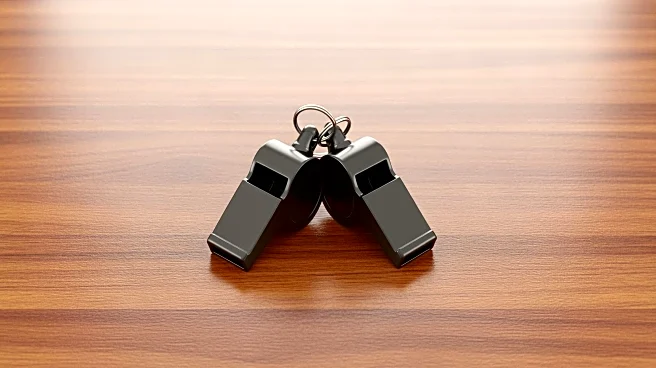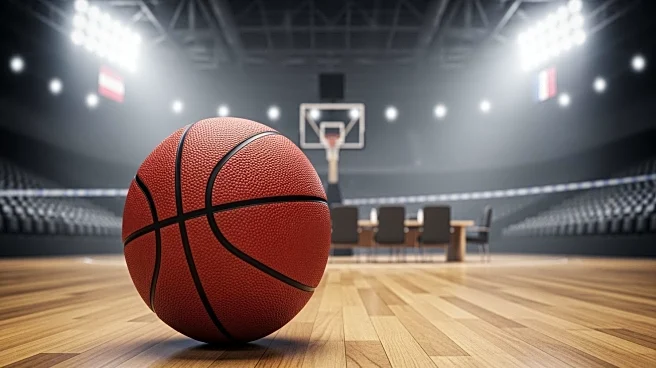What's Happening?
Jaylen Brown, a forward for the Boston Celtics, expressed strong dissatisfaction with the officiating during a game against the Utah Jazz, which ended in a 105-103 loss for the Celtics. Brown was involved
in a critical play late in the fourth quarter where he tripped over Jazz guard Keyonte George, who had fallen while defending him. This incident led to a turnover, allowing the Jazz to score and take the lead. Brown, who scored 36 points in the game, criticized the officials for not calling a foul, stating that the no-call was unacceptable and cost the Celtics the game. The crew chief, Kevin Scott, defended the decision, explaining that George slipped and fell before Brown, resulting in the ball becoming loose prior to any contact.
Why It's Important?
The incident highlights ongoing concerns about officiating in the NBA, which can significantly impact game outcomes and team standings. For the Celtics, currently holding a 3-5 record, such losses can affect their playoff prospects and team morale. Brown's public criticism may prompt discussions within the league about officiating standards and the need for potential reforms. The situation also underscores the pressure on referees to make accurate calls in high-stakes moments, which can influence the perception of fairness and integrity in the sport.
What's Next?
The Celtics may seek clarification or further review of the officiating from the NBA, potentially leading to discussions about improving referee training or implementing additional measures to ensure accurate calls. Brown's comments could also lead to increased scrutiny of officiating in future games, with teams and players advocating for more consistent and transparent decision-making processes. The Celtics will need to focus on improving their performance to recover from the loss and enhance their standing in the league.
Beyond the Headlines
The incident raises questions about the role of technology in sports officiating, such as the use of instant replay or other tools to assist referees in making accurate calls. It also touches on the cultural aspect of sportsmanship and the expectations placed on players and officials to maintain professionalism despite contentious situations. The broader implications may include discussions on how to balance human judgment with technological aids in sports.










